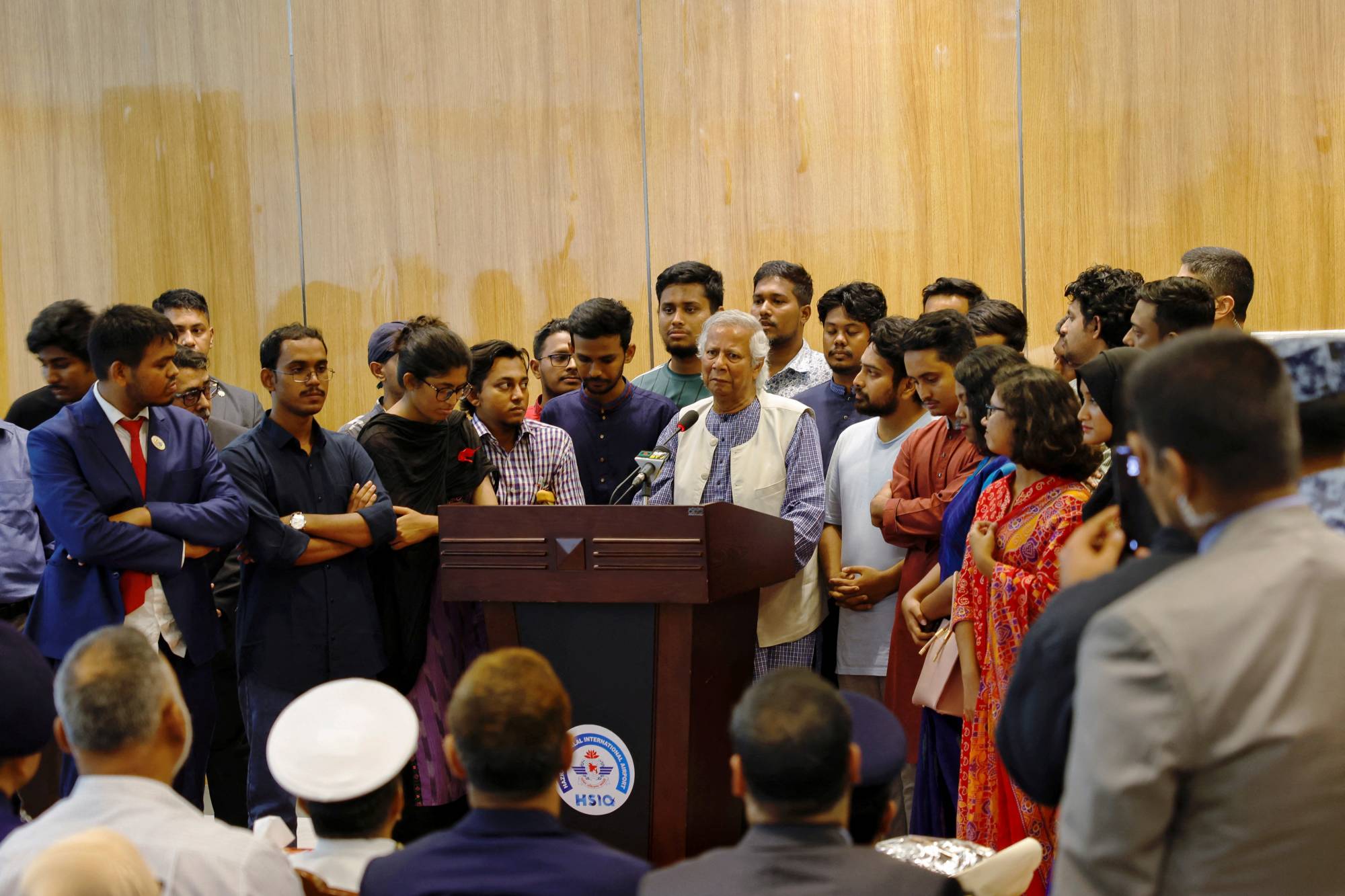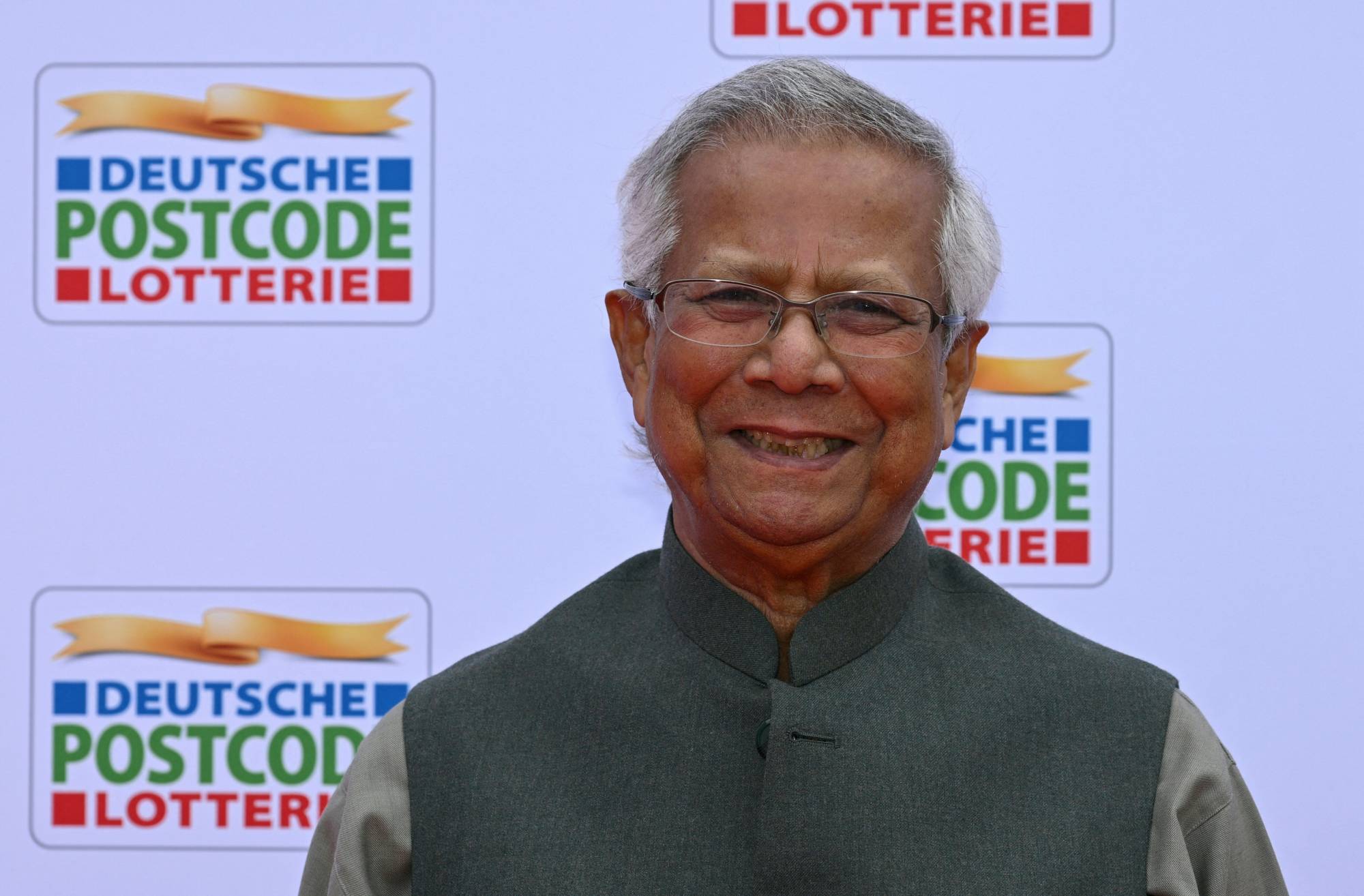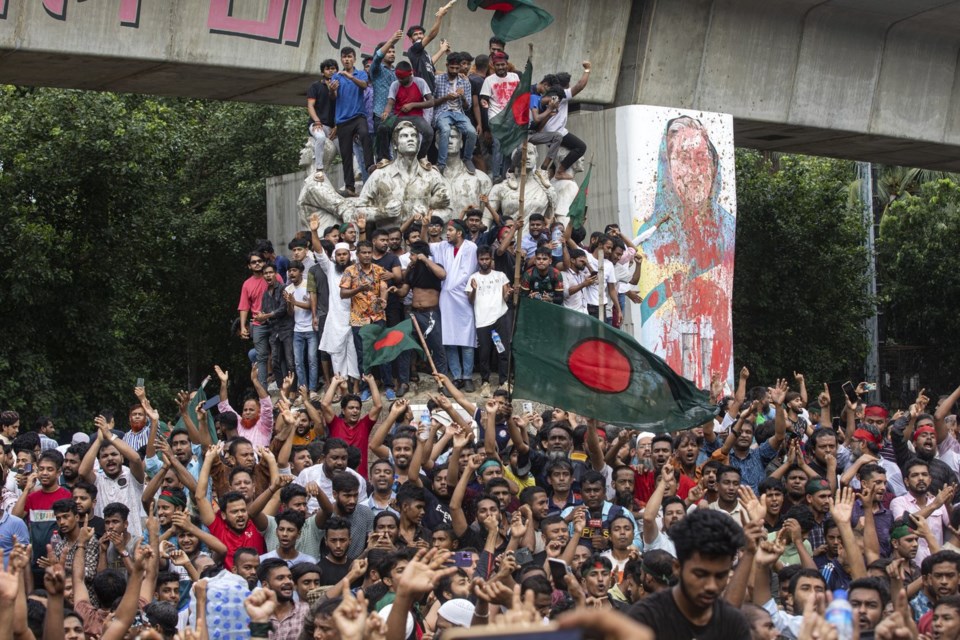Will Muhammad Yunus Succeed in Restoring Political Stability to Bangladesh?

“Today, all Bangladeshis feel that they have been liberated.”
A day after Prime Minister Sheikh Hasina was ousted and the army took power in Bangladesh, student leaders who led the protests in Bangladesh called for the banker of the poor, Muhammad Yunus, to head the interim government.
Yunus, who was in Europe, had earlier expressed his willingness to lead an interim government.
“I have always stayed away from politics, but today, if it is necessary to work in Bangladesh, for my country, for the courage of my people, I will do it,” he said in a statement.
Yunus and the Grameen Bank, which he founded, were awarded the Nobel Peace Prize in 2006 for their efforts to provide small loans to help impoverished people, particularly women.
The unrest began in July with protests against a quota system for government jobs, which critics said favored people with connections to Hasina’s party.
But they soon grew into a broader challenge to Hasina’s 15-year rule, which was marked by human rights abuses, corruption, allegations of rigged elections, and a brutal crackdown on her opponents.
Interim Leader
Bangladesh’s presidency has announced that Nobel Peace Prize laureate Muhammad Yunus will head an interim government, after parliament was dissolved and Prime Minister Sheikh Hasina fled the country.
“The decision to form an interim government headed by Yunus was taken during a meeting between Bangladesh President Mohammed Shahabuddin, senior military officers, and leaders of the student movement that organized the protests in early July,” the presidency said.
Upon his return to Dhaka to be sworn in, Yunus declared that Bangladesh had achieved a second liberation day.
“I strongly appeal to everyone to maintain calm. Please refrain from all forms of violence,” he said in a statement.
Yunus pledged to do everything in his power to ensure free and fair elections in the coming months, adding that young people should not be preoccupied with settling scores, unlike many in our previous governments.
“If you trust me, make sure that no attack is made against anyone anywhere in the country,” he said.
Tarique Rahman, acting chairman of the Bangladesh Nationalist Party (BNP), the main opposition movement to the former regime, also called for elections to be held as soon as possible, in a speech from his exile in London.
On July 6, Bangladesh’s president dissolved parliament at the request of student protest leaders and the opposition BNP.
Bangladesh’s main police union has asked the public to forgive the actions of police who were forced to open fire and were made to look like villains, announcing a strike until the safety of every police officer is guaranteed.
The president has also sacked the national police chief, and the army has made changes that include demoting several senior officers who are close to Hasina.

Banker to the Poor
Economist Muhammad Yunus is a vocal critic of Hasina’s regime, having previously accused the country’s politicians of being only interested in making money.
Yunus is credited with helping millions of Bangladeshis, especially women, by establishing a bank that provides small loans without collateral, helping lift them out of poverty.
Muhammad Yunus was born on June 28, 1940, in the southeastern state of East Bengal, which became part of Pakistan in 1955 and then Bangladesh in 1971.
He was the third of nine children in a Muslim family, and his father was a goldsmith, which provided him with a good education.
He enrolled at Dhaka University to study economics and graduated in 1961.
In 1965, Yunus received a Fulbright scholarship to study for a doctorate at Vanderbilt University in Tennessee.
He was part of the pro-independence Bangladeshi student movement. He returned to the newly independent Bangladesh in 1972, becoming head of the economics department at Chittagong University.
In 1976, Yunus went on a tour to visit the poorest families in the villages surrounding Chittagong University, and discovered that small loans could make a difference to these poor people. He put his idea into practice by lending $27 to 42 women.
In December 1976, Yunus succeeded in obtaining a loan from the government through the Janata Bank to lend to the poor in the village of Gorba, and he also secured loans from other banks. By 1982, the number of borrowers had reached 28,000.
In October 1983, Yunus successfully transformed the pilot project in the village of Jobra into a bank called Grameen Bank, and restructured the bank into an independent institution. The advantage of the bank was that it did not require collateral to obtain a loan.
One of the bank's priorities was to empower women and involve them in economic activities – about 98% of the borrowers were women – and these loans affected their lives and improved their living conditions.
Yunus expanded his activities, and his loans amounted to billions, covering education, health, housing, and agriculture.
He was awarded the Nobel Peace Prize in 2006, jointly with Grameen Bank, for their work in lifting millions out of poverty, by granting small loans of less than $100 to the poor in rural Bangladesh, which opened the door to what became known as microlending.
In 2017, Grameen Bank had over 2,600 branches in 40 districts of Bangladesh, with over 9 million borrowers, and very high recovery rates ranging from 97% to 99.6%.
The bank is active in 94% of Bangladesh’s villages, covering 81,678 villages, and serving around 45 million Bangladeshis.

Political Intimidation
On the other hand, Grameen Bank’s activities were not well received by the Bangladeshi government. In 2011 the central bank forced Yunus to step down as chairman of Grameen Bank, on the grounds that he had exceeded the mandatory retirement age of 60.
Sheikh Hasina had previously accused him of sucking the blood of the poor. His supporters said the government was just trying to tarnish his image.
In turn, Mubashar Hasan, an academic and author of several books on Bangladesh history, said that PM Sheikh Hasina had viewed Yunus as a potential rival, especially after he announced plans in 2007 to launch a political party to rival Hasina’s Awami League party, but dropped those plans the following year.
As of last September, according to local reports, Yunus had faced 174 court cases, including violations of labor law and allegations of corruption.
However, human rights groups say the dozens of cases against him amount to intimidation and political retaliation.
In January, Yunus and three colleagues at Grameen Telecom, one of the companies he founded, were charged with failing to set up a provident fund, thereby violating labor law.
Agence France-Presse reported at the time that Yunus and his colleagues were convicted under labor laws and sentenced to six months in prison, noting that they were released on bail pending appeal. The defendants deny the charges against them.
Yunus said after the verdict was announced: “I was punished for a crime I did not commit.”
These cases targeting Yunus have sparked global reactions. In August 2023, 170 global figures, including former US President Barack Obama and former UN Secretary-General Ban Ki-moon, published a joint open letter denouncing the ongoing legal proceedings against Yunus.

With the escalation of protests in Bangladesh, Yunus said in an interview with the French newspaper Le Figaro that the army had abandoned Sheikh Hasina, otherwise, she would not have resigned and left the country, adding that it is necessary to form a civilian government and hold elections as soon as possible.
Yunus believes that those who have owned the country for decades will do everything they can to destabilize the country, and that the revolution is not over yet because what is required now is to work on changing things deeply, considering that Bangladesh is going through a turning point in its history.
He also said in an interview with The Print that Bangladesh was an occupied country during Hasina's rule, adding: “Today, all Bangladeshis feel that they have been liberated.”









